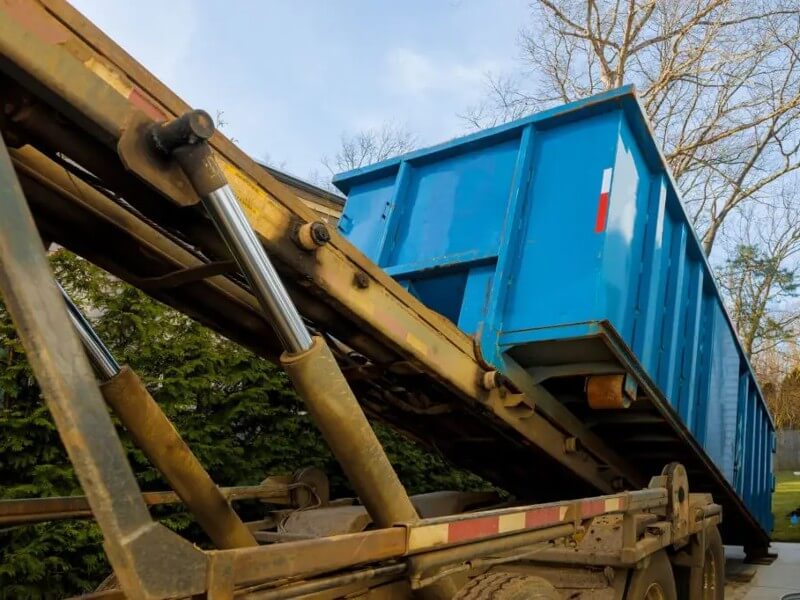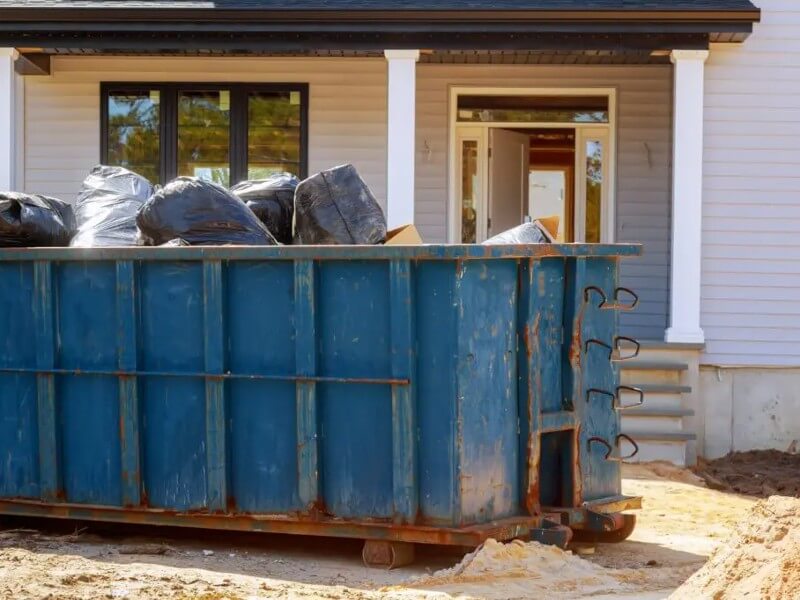The Environmental Impact of Roll-Off Dumpsters
Roll-off dumpsters have become a staple in communities, construction sites, and businesses all over. They’re big, they’re efficient, and they’re vital for managing waste. But beyond the obvious utility, the environmental role these dumpsters play is substantial.
The Role in Waste Management
Roll-off dumpsters help in managing a vast amount of waste. With their sizable capacity and ease of transport, they make waste collection streamlined.
- Waste Collection: Roll-off dumpsters are equipped to hold both residential and commercial waste. Whether it’s yard debris, construction waste, or regular household junk, these dumpsters can handle it.
- Safety: With proper waste disposal using these dumpsters, there’s a significant reduction in the risk of pollutants leaking into the soil or air.
Connection to Environmental Protection
Having a system to manage waste isn’t just about cleanliness; it directly influences the environment.
- Landfills: Reducing the amount of waste going to landfills is essential. Landfills can leach harmful substances into the soil and groundwater. Roll-off dumpsters, especially when used in tandem with recycling initiatives, can help minimize this risk.
- Air Quality: Poor waste disposal can also impact air quality. Decomposing waste releases methane, a potent greenhouse gas. Ensuring the timely disposal of waste using roll-off dumpsters can control the release of such harmful gases.
Understanding the environmental role of roll-off dumpsters is the first step. It’s not just about getting rid of trash. It’s about protecting the environment for today and future generations. Everyone involved in the roll-off dumpster business plays a part in this crucial ecological balance.

Sustainable Waste Management Using Roll-off Dumpsters
Roll-off dumpsters aren’t just about hauling away waste; they play an integral part in fostering a more sustainable waste management system. When used effectively, these dumpsters can make a significant difference in reducing our environmental footprint.
Benefits of Separated Waste Collection
When waste is separated at the source, it becomes easier to process and recycle. Roll-off dumpsters can be designated for specific types of waste, ensuring that recyclables aren’t mixed with general trash.
- Recyclables: Having separate dumpsters for recyclables ensures that materials like paper, glass, and plastics don’t end up in landfills. This not only saves valuable resources but also reduces the energy required for producing new products from raw materials. In some cases, recycling can lead to more profitability for a roll-off dumpster business.
- Organic Waste: Organic waste, such as food scraps and yard waste, can be composted to create natural fertilizers. Designated roll-off dumpsters for such waste can make the composting process more efficient.
Reducing Landfill Waste
One of the most pressing environmental challenges today is the overuse of landfills. But with conscious efforts and the right approach to waste management, this can be changed.
- Diverting Waste: By segregating waste and focusing on recycling and composting, a significant portion of what typically ends up in landfills can be diverted. This not only conserves land but also reduces the harmful environmental impacts of landfills.
- Extended Use: Items that might be seen as waste, such as construction debris, can often be repurposed or recycled. Roll-off dumpsters can help collect such materials, ensuring they are processed for extended use rather than being discarded.
Roll-off dumpsters, when utilized with sustainability in mind, can do much more than just transport waste. They can be catalysts for change, encouraging communities and businesses to think about waste not just as trash to be discarded, but as a resource to be managed responsibly. Sustainable waste management is the future, and roll-off dumpsters are at the forefront of this movement.
Minimizing Carbon Footprint with Efficient Dumpster Operations
A significant aspect of the environmental impact of roll-off dumpsters is tied to their operations. Every time a dumpster is hauled, fuel is consumed, and emissions are released. But with mindful strategies, these emissions and the overall carbon footprint can be considerably reduced.
Efficient Transportation
Transporting waste is a primary function of roll-off dumpsters, and it’s here that major steps can be taken to minimize environmental impact.
- Optimized Routes: By planning and optimizing routes, fewer miles can be traveled. This not only saves fuel but also reduces wear and tear on vehicles and roads.
- Fuel-Efficient Vehicles: Transitioning to or investing in more fuel-efficient vehicles, or even those running on alternative fuels, can significantly lower emissions.
Regular Maintenance
A well-maintained vehicle runs more efficiently, emits fewer pollutants, and is less likely to have spillages or leaks.
- Regular Checks: Ensuring that the vehicles hauling the roll-off dumpsters are regularly checked and serviced can improve fuel efficiency and reduce the risk of leaks.
- Eco-friendly Lubricants and Fluids: There are environmentally friendly options available for vehicle lubricants and other essential fluids. Switching to these can reduce environmental harm.
Roll-off dumpsters, while vital for waste management, also carry the responsibility of operating in an environmentally conscious manner. With the right strategies in place, the roll-off dumpster industry can ensure it is part of the solution to environmental challenges, rather than contributing to the problem. The steps taken to minimize the carbon footprint not only benefit the environment but can also lead to operational cost savings, making it a win-win situation.
Roll-Off Dumpsters in Hazardous Waste Disposal
The management of hazardous waste is a critical aspect of environmental protection. Incorrectly disposed hazardous materials can have dire consequences for the environment and public health. Roll-off dumpsters play a pivotal role in ensuring these dangerous wastes are handled with the utmost care and precision.
Importance of Specialized Dumpsters
Not all dumpsters are the same, especially when dealing with hazardous materials. To ensure sustainable waste management, consider specialized dumpsters.
- Special Linings: Roll-off dumpsters meant for hazardous waste often come with special linings. These linings prevent leaks and ensure that harmful substances don’t seep into the ground.
- Labeling and Identification: It’s crucial for hazardous waste containers to be clearly marked. This ensures they’re handled appropriately, and everyone stays informed about the contents.
Proper Training for Handling
Handling hazardous waste requires specialized knowledge.
- Training Programs: Those in the roll-off dumpster industry must be adequately trained to handle hazardous waste. This ensures that waste is disposed of correctly and reduces the risk of accidents.
- Safety Protocols: Alongside training, there must be strict safety protocols in place. Whether it’s wearing the right protective gear or knowing how to respond to spills, these protocols are vital.
Regulatory Compliance
The disposal of hazardous waste is heavily regulated to protect both the environment and public health.
- Staying Informed: The regulations around hazardous waste disposal can be complex and may vary by location. Those in the roll-off dumpster business need to be well informed to ensure full compliance.
- Documentation: Proper documentation is a regulatory requirement and an essential practice to track the disposal process. This includes details about the type of waste, its source, and its final disposal location.
The role of roll-off dumpsters in hazardous waste disposal is paramount. With the right equipment, training, and adherence to regulations, these dumpsters ensure that harmful materials are kept out of our environment and that we maintain a safer, healthier world for everyone.

Innovations and Advancements in Roll-Off Dumpster Operations
As the world rapidly evolves, so does the roll-off dumpster industry. Embracing technology and innovation has become more than just a competitive advantage—it’s essential for ensuring sustainable and environmentally responsible operations.
Technological Integration
Modern roll-off dumpsters are not the basic bins of yesteryears.
- Smart Sensors: These are now being integrated into dumpsters to monitor fill levels. Such sensors can alert when a dumpster is full, optimizing pickup schedules and reducing unnecessary trips.
- GPS Tracking: This allows businesses to monitor the routes and locations of their dumpsters in real-time, ensuring efficient operations and quick response times.
Environmentally-Friendly Materials
The materials used in constructing roll-off dumpsters have seen significant advancements.
- Recycled Materials: Many new dumpsters are made from recycled materials, emphasizing the industry’s commitment to sustainability.
- Durable Designs: Innovations in design ensure that dumpsters last longer, reducing the need for frequent replacements and thereby minimizing waste.
Advanced Waste Processing
The post-collection phase has also witnessed groundbreaking advancements.
- Automated Sorting: With the aid of AI and robotics, waste sorting has become more efficient, ensuring a higher percentage of recyclables are recovered.
- Waste-to-Energy Technologies: Instead of just disposing of waste, technologies now allow for converting certain wastes into energy, further reducing the environmental footprint.
Making an Impact with Roll-Off Dumpsters
The roll-off dumpster industry, often perceived as just a waste disposal mechanism, stands at the forefront of environmental conservation. Through a combination of sustainable practices, technological innovations, and an unwavering commitment to the environment, the sector plays a pivotal role in shaping a more sustainable future. As we reflect on the environmental impact of roll-off dumpsters, it becomes evident that with the right practices, even industries grounded in waste can be champions of eco-friendly initiatives.
Frequently Asked Questions
1. How do roll-off dumpsters contribute to environmental conservation?
Roll-off dumpsters play a dual role in environmental conservation. Firstly, they ensure efficient waste collection and transportation, reducing litter and pollution. Secondly, with advancements in technology and sustainable practices, they minimize their carbon footprint and support recycling initiatives.
2. Are there roll-off dumpsters specifically designed for eco-friendly projects?
Yes, there are roll-off dumpsters tailored for eco-friendly projects. Many are constructed from recycled materials and come equipped with features like smart sensors to optimize pickup schedules, reducing unnecessary trips and emissions.
3. How do roll-off dumpsters handle hazardous waste responsibly?
Roll-off dumpsters designed for hazardous waste come with special linings to prevent leaks and are clearly marked to ensure appropriate handling. Furthermore, individuals in the roll-off dumpster industry undergo specific training to handle hazardous waste safely and according to regulations.
4. What innovations should we expect in the roll-off dumpster industry?
The industry is rapidly embracing technology. Expect to see more widespread use of smart sensors, GPS tracking, AI-assisted waste sorting, and waste-to-energy technologies. The focus will remain on reducing environmental impact and improving efficiency.
5. How can I ensure my roll-off dumpster operations are environmentally friendly?
Stay updated with industry best practices and regulations. Invest in training for your team, especially regarding hazardous waste handling. Embrace innovations like smart sensors and GPS tracking to optimize operations and consider using dumpsters made of recycled materials. Always prioritize safe and environmentally-conscious waste disposal.


